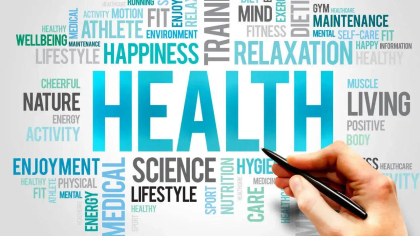We spend a lot of money on health:
Countries use up to 18% of their funds on it.
Yet, data finds that one-fifth of our lives might be spent in poor health.
But, some places are different.
In these communities, people rarely have heart problems, dementia is almost unknown, and it’s common to see people over 100 years old living well.
What's their secret?
How do they stay so healthy while getting older?
This newsletter digs into these questions.
We’re looking at how to not just live longer, but live better.
Because as the saying goes:
Health is not everything, but without health, everything is nothing.
What are the healthiest people in the world doing differently?
Dan Buttner explored this question together with National Geographic.
They looked for the healthiest communities on the planet and investigated their lifestyle.
Dan came up with the following list:
- Sardinia, Italy: They found a hot spot of 100-year-olds in the mountain village of Seulo.
There are several reports of men having children at the age of 80. - Ikaria, Greece: This island has the highest percentage of 90-year-olds.
Residents suffer 20% less cancer, 50% less heart disease, and almost no cases of dementia. - Okinawa, Japan: Some of the oldest people in the world live here.
Japan as a whole has the second highest life expectancy in the world and an obesity rate of only 3,6% (compared to 32% in the US). - **Loma Linda, California: **A group of Seventh-day Adventists.
Members live 10 years longer than the average American. - Nicoya, Costa Rica: A rural peninsula.
Men over the age of 60 are seven times more likely to reach the 100-year mark. than the global average.
Despite being spread all over the world, they share several common factors:
1 - Nutrition
People in Bluezones eat natural, whole foods.
Added sugars, processed meats, refined oils, or other highly processed foods are rare.
They also limit alcohol and smoking (the #1 cause of preventable death).
Let's look at Sardinia's Mediterranean diet:
It's mostly vegetables, beans, whole grains, olive oil, fish, and seafood.
They drink wine, but only in moderate amounts.
Studies found the Mediterranean diet reduces heart disease, diabetes, and mortality.
2 - Physical activity
People in Bluezones stay on their feet.
For instance, in Nicoya, a hilly area, many people are farmers.
Office workers average only 3000 daily steps - only a third of the recommended 8000-10000.
A sedentary lifestyle is among the highest risk factors for early death and disease:
A study with 50,000 people found that those who move more have a 40-53% lower chance of early death compared to less active people!
3 – No chronic distress
People in Bluezones do hard work, but are absent from chronic distress.
For example, the farmers mentioned above have clearly defined periods of rest.
That's different from modern work culture:
We tend to be involved in our job or business 24/7, unable to catch a real break.
Stress makes you crave unhealthy food, recover slower, get irritated easily, and overeat.
Additionally, chronic stress promotes heart disease, cancer, and diabetes – conditions rare in Bluezones.
4 – Strong social ties
People in Bluezones hardly ever feel lonely.
All the places we looked at have strong social bonds and include old people in community life:
In Sardinia, grandparents look after the kids, and in Okinawa, being close to family and friends is a cultural value.
In contrast, a global survey says one in three people feels lonely.
Feeling lonely can lead to mental health problems and dementia, which is a big issue for older people.
5 – Meaningful work:
Inhabitants of Bluezones feel connected to their work - which can be hard in modern jobs with corporate structures.
David Graebner talks about this in his book "Bullshit Jobs":
He describes these jobs as pointless or unnecessary work that employees have to pretend is important.
Everyone wants to do work that matters.
Doing work that feels like it's making a difference is very fulfilling and makes you happy.
This brings you to the last aspect of this list:
6 – Happiness & a positive outlook toward life
People in Bluezones are usually happy and think positively.
In contrast, some studies say Americans are the unhappiest they've been in 50 years.
Depression can lead to problems like sleep issues and weight gain, while being happy can lead to healthier habits and a lower chance of heart disease.
Science is learning more about how our thoughts and feelings affect our bodies - like the placebo effect:
Joe Dispenza's book "You are the Placebo" talks about cases where people got better or worse just because of their beliefs.
Conclusion:
People in Bluezones don't do anything crazy.
They live the basic advice you've heard a million times:
Not smoking
Staying active
Moderating alcohol
Eating unprocessed foods
Knowing what to do isn't the hard part.
It's making these habits part of daily life, while battling deeper issues like excessive stress, sedentary work environments, loneliness or lack of purpose.
If you’re ready to get serious about your fitness-goals, I can help you.
If you're a driven entrepreneur or creator and looking to:
Manage stress in an efficient manner for better health and productivity
Drop up to 20lbs in 90 days, without the diet-hamster wheel
Reach your dream physique in just 2 hours per week
Click HERE for a free 30-minute strategy call where I'll show you exactly how it works.

